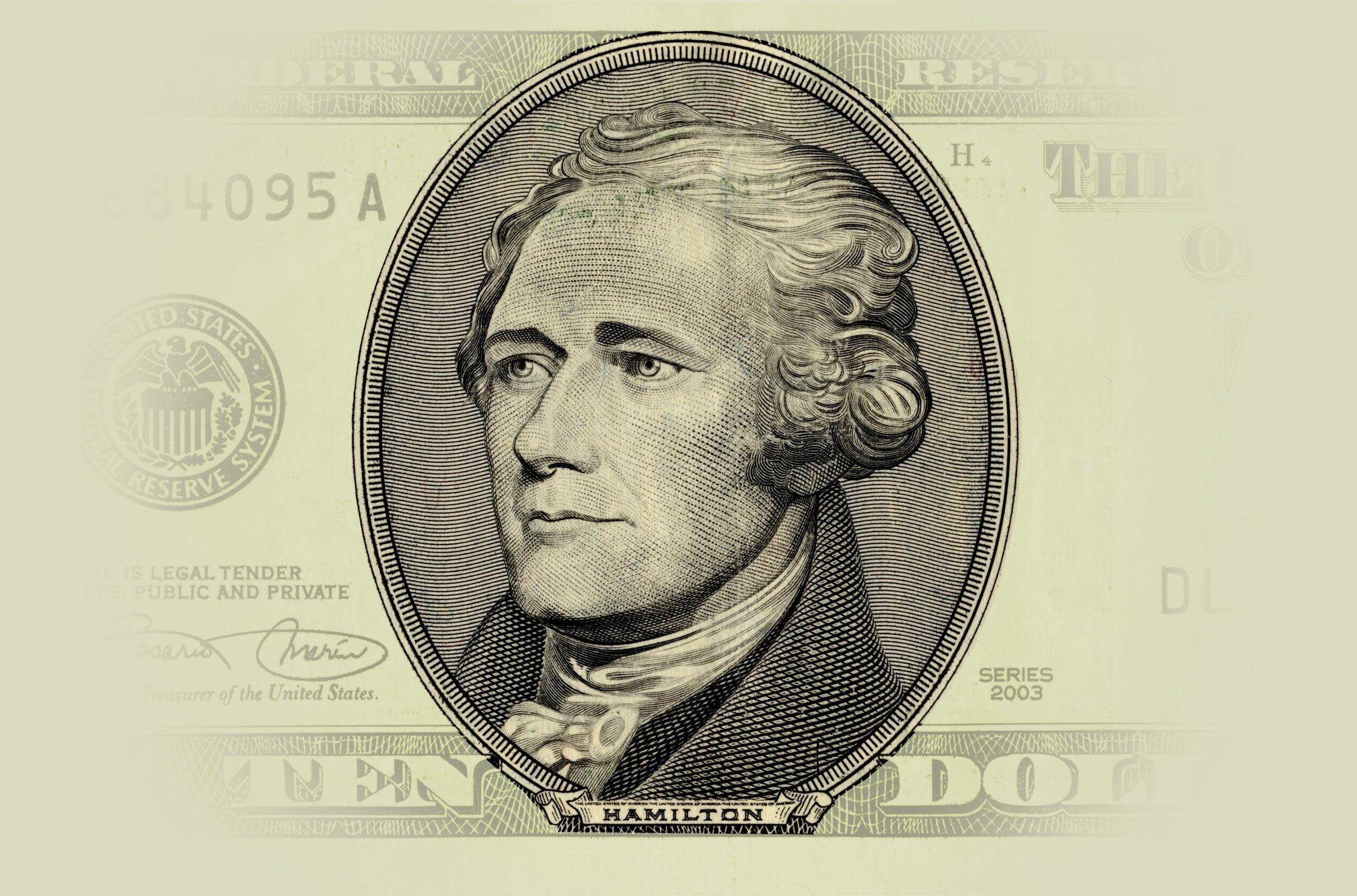
Authored by Steve H. Hanke of the Johns Hopkins University. Follow him on Twitter @Steve_Hanke.
Part 3 of a series on Hamilton: "Hamilton’s Good for the Ten-Spot" and "Alexander Hamilton: Defender of Property Rights."
If nothing else, Treasury Secretary Jack Lew’s decision to retain Alexander Hamilton’s image on the ten dollar bill shows that the Secretary can read and react to opinion polls. Hamilton was not only our 1st Treasury Secretary, but a distinguished one.
Just how great was he? A recent scholarly book by Robert E. Wright and David J. Cowen, Financial Founding Fathers: The Men Who Made America Rich, begins its pantheon of greats with a chapter on Alexander Hamilton. It is aptly titled “The Creator.”
After the Constitution was ratified and George Washington was elected President, the new federal government lacked credibility. Public finances hung like a threatening cloud over the government. Recall that paper money and debt were innovations of the colonial era, and that, once the Revolutionary War began, Americans used these innovations to the maximum. As a result, the United States was born in a sea of debt. A majority of the public favored a debt default. Alexander Hamilton, acting as Washington’s Secretary of the Treasury, was firmly against default. As a matter of principle, he argued that the sanctity of contracts was the foundation of all morality. And as a practical matter, Hamilton argued that good government depends on its ability to fulfill its promises.
Hamilton won the argument and set about digging the country out of its financial debacle. Among other things, Hamilton was – what would today be called – a first-class financial engineer. He established a federal sinking fund to finance the Revolutionary War debt. He also engineered a large debt swap in which the debts of individual states were assumed by the newly created federal government. By August 1791, federal bonds sold above par in Europe, and by 1795, all foreign debts had been paid off. Hamilton’s solution for America’s debt problem provided the country with a credibility and confidence shock.
So, for Hamilton, secure property rights and the sanctity of contracts were front and center.